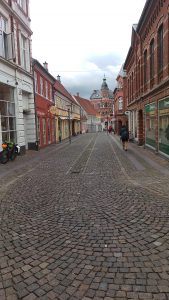I was born in the Capital city of Colombia, Bogota, which is home to 7.413 million people. However, it was never home for me. When I was 7 months old, we moved back to Canada, to a very small town that used to be Winfield but now they call Lake Country (something about the name having a better ring to it, but if you follow the hyperlink you’ll notice that it was originally Indigenous land), but I can’t say that that was ever a home to me either. Then we moved to Kelowna, in to a big enough house for my siblings and I to be both super far apart but still very close together. This was the place I called home.
I was 17 when we moved out. At this point in time it was just my mother and I, and somewhere along the way the home that our family had built had been so filled with empty spaces and dust in the corners that it would be a kindness to call it much more than just a house. Since then, I’d like to say I’ve learnt a few things, but maybe that would be considered a kindness as well. I remember the day we left very clearly, my sister had sent me a letter she wanted us to read as a last goodbye to the home we grew up in. So we stood in the entry way, my mother and I, and we read out loud to each other. The letter began very simply. “To the last home we will have lived together as a family.” It was filled with all the moments that had made this house into our home. Stories of the wild adventures we brought back with us when we trekked mud across all the floors (much to my mother’s dismay), stories of early Saturday morning cartoons and Sunday brunches. One particularly good story about the cat jumping off the roof, but we’ll save that for another time (spoiler alert, I caught him).

So then we moved in to an apartment, and it felt a lot like a hotel for a while. Somewhere to sleep but not somewhere you stay. It took some time, along with both good experiences and some bad ones too, to realize that home was more a feeling then it ever was a place. I have been lucky enough to travel, and I’ve seen some spectacular places filled with spectacular people. I felt the feeling of being home when I went to visit my sister, two years is too long to miss out of seeing someone you love. At the time, she was living on the island of Marstal, which is essentially an island off the coast of an island off the coast of another island. It was a tiny village, and I felt at home with her in this place that was completely foreign to me.
I know where I am from, and I know where I have been, and I know that home is more a feeling than it will ever be a place. I’ve found a home in the feeling of crawling into a comfy bed at the end of the day. It’s the moments that I am lulled to sleep by the sound of my boyfriends snoring (which will inevitably also wake me up again a couple hours later). It’s in the first sip of coffee in the morning, and in every hug with my best friends. Home to me is cozy, it is comfortable, and it is a feeling of love.
The moral to my story is that my home is in the experiences I have had, its in the moments that shaped who I am and who I will eventually become. To me, home is a feeling. To others, it may be a place. I do believe that there is no one truth, no one person has it all right. In those first couple weeks after leaving my childhood home, I explored what home was – what this subjective experience could be. For many, home is the land they live on. This is true especially for Indigenous peoples. Throughout Canadian history, they have been displaced a countless number of time from their own land, their own home. To them land mean more than just property, it is their culture, their relationships, their spirituality among other things.
Works Cited
Archives, Lake Country Museum &. Historical Map. n.d. 27 01 2020. <https://www.lakecountrymuseum.com/lake-country-history/historical-map/>.
Armstrong, Jeanette. Indigenous Foundations. n.d. 26 01 2020. <https://indigenousfoundations.arts.ubc.ca/land__rights/>.